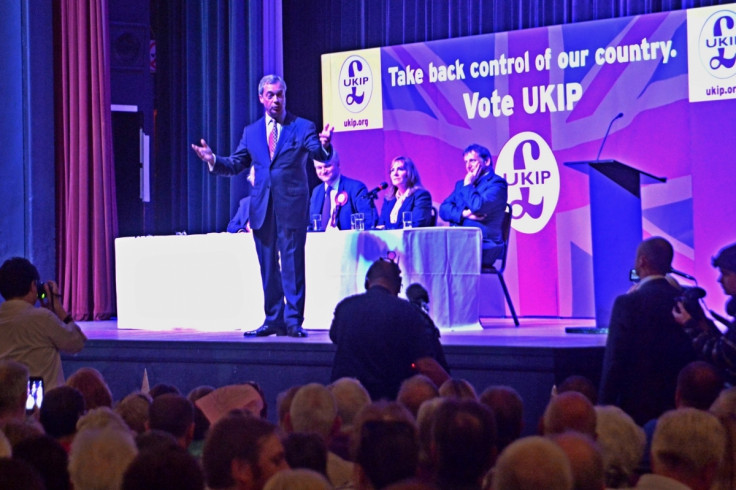Elections 2014: Can Cameron Avert Outbreak of Tory Panic if he Suffers Black Thursday?
It may go down in the history books as David Cameron's "Black Thursday", the day his Tory party was driven to a humiliating third place in EU elections, losing to both Labour and Ukip.
It appears nothing can now avert the inevitable and the only remaining questions are whether Labour can see off the challenge for first place from Nigel Farage's "people's army" and how poor a third place the Conservatives will fall to.
Yet, bizarrely, the expectations of all-out, headless-chicken-style panic in the Tory ranks following a painful drubbing appear to have receded of late.
Only weeks ago there was talk of the prime minister facing backbench demands for election pacts with Ukip, more concessions to his Eurosceptic "irreconcilables" and even whispers, albeit incredible ones, of a leadership challenge.
The party, it was said, would dive straight into the sort of recriminations and bitter internal wrangling of the sort once favoured, and since abandoned, by the Labour party.
But there have been some signs that, while there will indeed be some panic in the ranks, when the results are all finally known on Monday 26 May the Tory party will rally around its leader. Perhaps it will be out of sympathy.
The prime minister has certainly done everything he can to meet the Ukip threat, but nothing has so far dented Nigel Farage's armour let alone pierced it. In fact, the more he was attacked and labelled "racist", the more he seemed to attract voters.

Cameron first attempted to head off Ukip with his pledge to offer an in-out referendum on EU membership, hoping that would silence his Eurosceptics and stop those voters defecting to the Farage flag.
It didn't work, mainly because too many didn't believe he would ever deliver but also because his "irreconcilables" who cause all the trouble on his backbenches are just that, they will only be happy with a cast-iron guarantee of EU withdrawal.
So Cameron then upped the ante by promising he would not serve as prime minster if he could not deliver on that referendum. That didn't work either, largely because it was stating the blindingly obvious.
It has also seemed that Farage's position as the underdog boosted him while his refusal to be moved by the attacks on him by politicians and the media, which reached a new pitch in the closing days of the campaign, only made him stronger.
Voters still feeling the effects of the recession, fed up with mainstream politicians, alienated from the distant ruling elite and eager to give the government of the day a traditional mid-term thrashing continue to look towards the outsider who they believe is being bullied by the establishment.
However, Tories in Westminster appear resigned to a heavy defeat yet optimistic the Farage factor will pass and, as the economy continues to improve and voters start looking at who they want in Downing Street, things will start moving back in their direction.
There will be an early test of that optimism when the Tories face a challenge from Ukip in the normally rock-solid Newbury constituency in a by-election on 5 June caused by the resignation of MP Patrick Mercer.
A strong performance by Ukip's Roger Helmer could threaten to spark some real panic if backbench MPs believe it indicates the Farage factor is here to stay rather than a simple mid-term protest.
And that could very quickly become a serious and long-term problem for the prime minister.
© Copyright IBTimes 2025. All rights reserved.






















